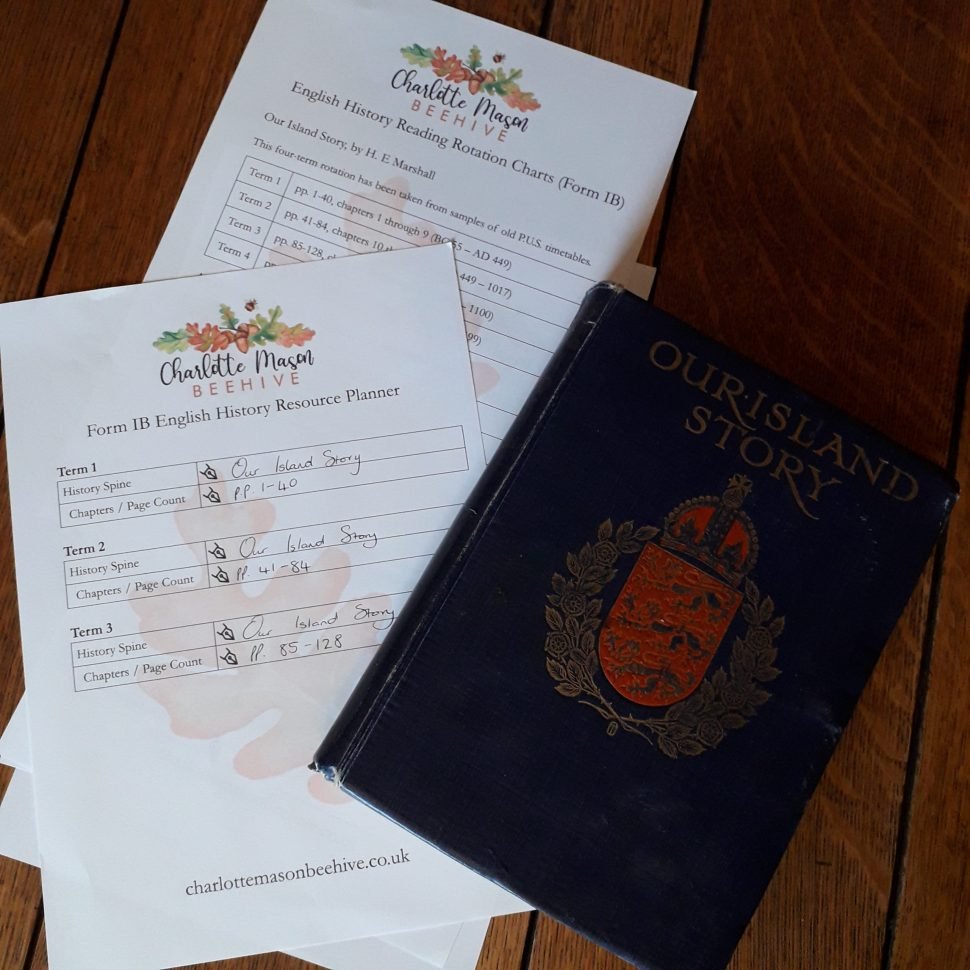English History: Form IB

“For the matter for this intelligent teaching of history, eschew, in the first place, nearly all history books written expressly for children; and in the next place, all compendiums, outlines, abstracts whatsoever […] Let a child have the meat he requires in his history readings, and in the literature which naturally gathers round this history, and imagination will bestir itself without any help of ours; the child will live out in detail a thousand scenes of which he only gets the merest hint”.
[Vol. I, p. 281]
Scheduling
2 × 20 minute lessons per week. The second lesson is optional. The P.U.S. programmes state that “A second lesson to be taken on Saturday, 9.20-9.40, otherwise pages read with omissions,” so should the teacher decide to schedule just one lesson a week then she may find cause to make omissions when reading the term’s text.
School Books and Material Covered
“The child of six in IB has, not stories from English History, but a definite quantity of consecutive reading, say, forty pages in a term, from a well-written, well-considered, large volume which is also well-illustrated.”
[Vol. VI, p. 172]
Charlotte Mason, in her programmes, always assigned Our Island Story, by H. E. Marshall1 (a popular choice still today) as the main history text for Form I. Chapters 1 through 27 were normally read during the child’s first year in the P.U.S. programmes, and cover the events leading up to the Battle of Hastings and through the time period of William the Conqueror.
An average of forty pages (approx. 2 pages per lesson) of Our Island Story was read during each term, and was divided up like so (the page numbers refer to the T.C. & Jack edition that was used by Charlotte Mason):2

As you will notice, the IB history stream followed a four-term cycle, and as there were only three terms in Form IB the students would never complete the entire stream. The Form IA history stream always began in 1199 and the students would jump into the stream wherever the form happened to be at that point.
An alternative schedule has been suggested below based on a three-term cycle. The following schedule averages about fifty-six pages per term, which is about two and a half pages per lesson².

Practical Application
“Children cannot of course themselves read a book which is by no means written down to the ‘child’s level’ so the teacher reads and the children ‘tell’ paragraph by paragraph, passage by passage. The teacher does not talk much and is careful never to interrupt a child who is called upon to ‘tell.’ The first efforts may be stumbling but presently the children get into their ‘stride’ and ‘tell’ a passage at length with surprising fluency. The teacher probably allows other children to correct any faults in the telling when it is over. The teacher’s own really difficult part is to keep up sympathetic interest by look and occasional word, by remarks upon a passage that has been narrated, by occasionally shewing pictures, and so on. But she will bear in mind that the child of six has begun the serious business of his education, that it does not matter much whether he understands this word or that, but that it matters a great deal that he should learn to deal directly with books.”
[Vol. VI, p. 172]
Aside from the bulk of the child’s history work being performed through reading and narration, the students may also be required to keep some history charts and timelines. Their history knowledge is also expected to manifest itself during drawing lessons, and in their free play.
Further Reading
Notes of Lessons: History, Class Ia
Printables
Footnotes
- Prior to publication of Our Island Story, the history text assigned for Form I students was F. York-Powell’s Old Stories from British History, as mentioned in Vol. I: Home Education. After Our Island Story replaced York-Powell’s book, it remained the prominent Form I history spine until many years after Mason’s death. [↩]
- Based on two history lessons a week over an eleven week term (excluding time allowed for exams in the twelfth week). [↩]


